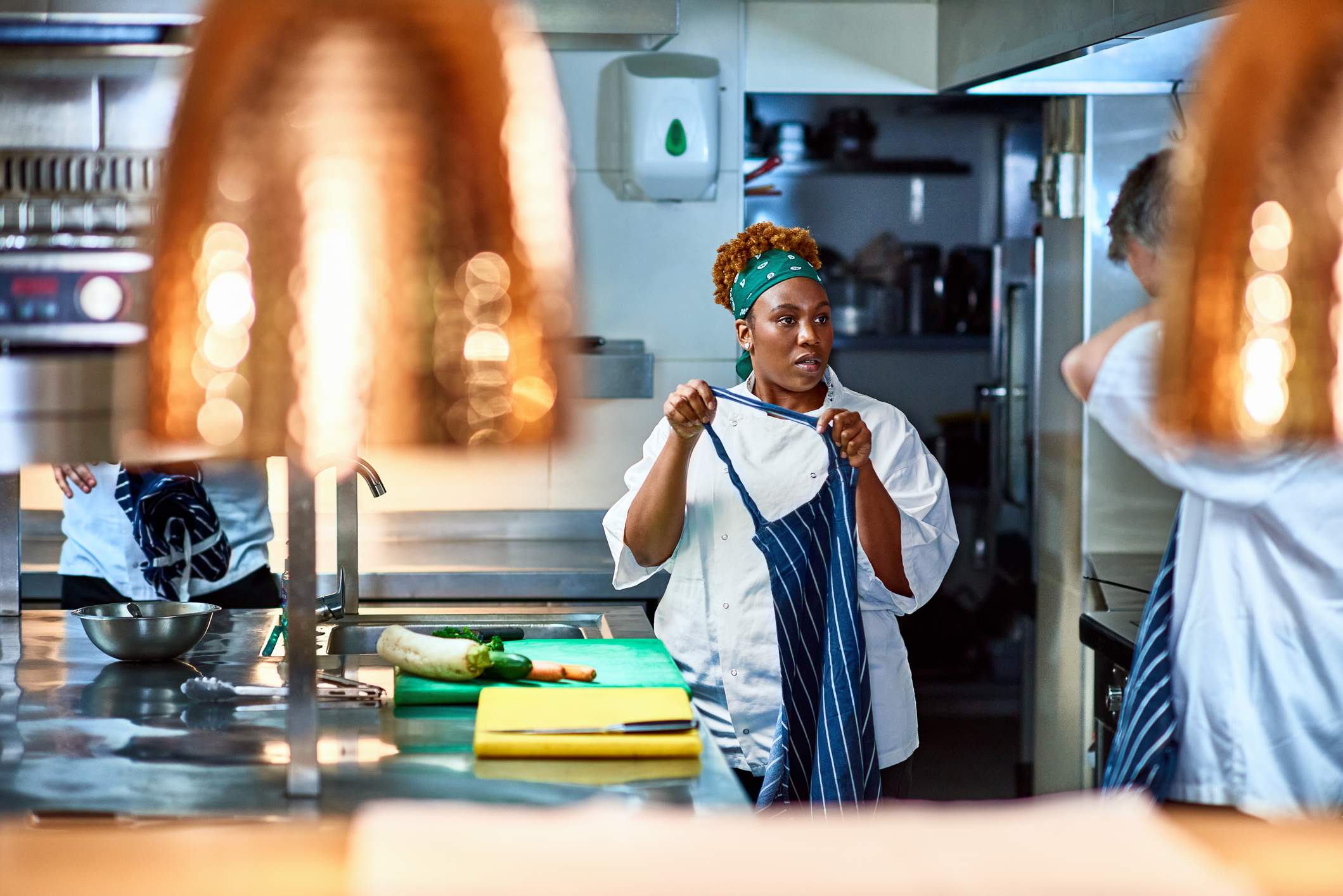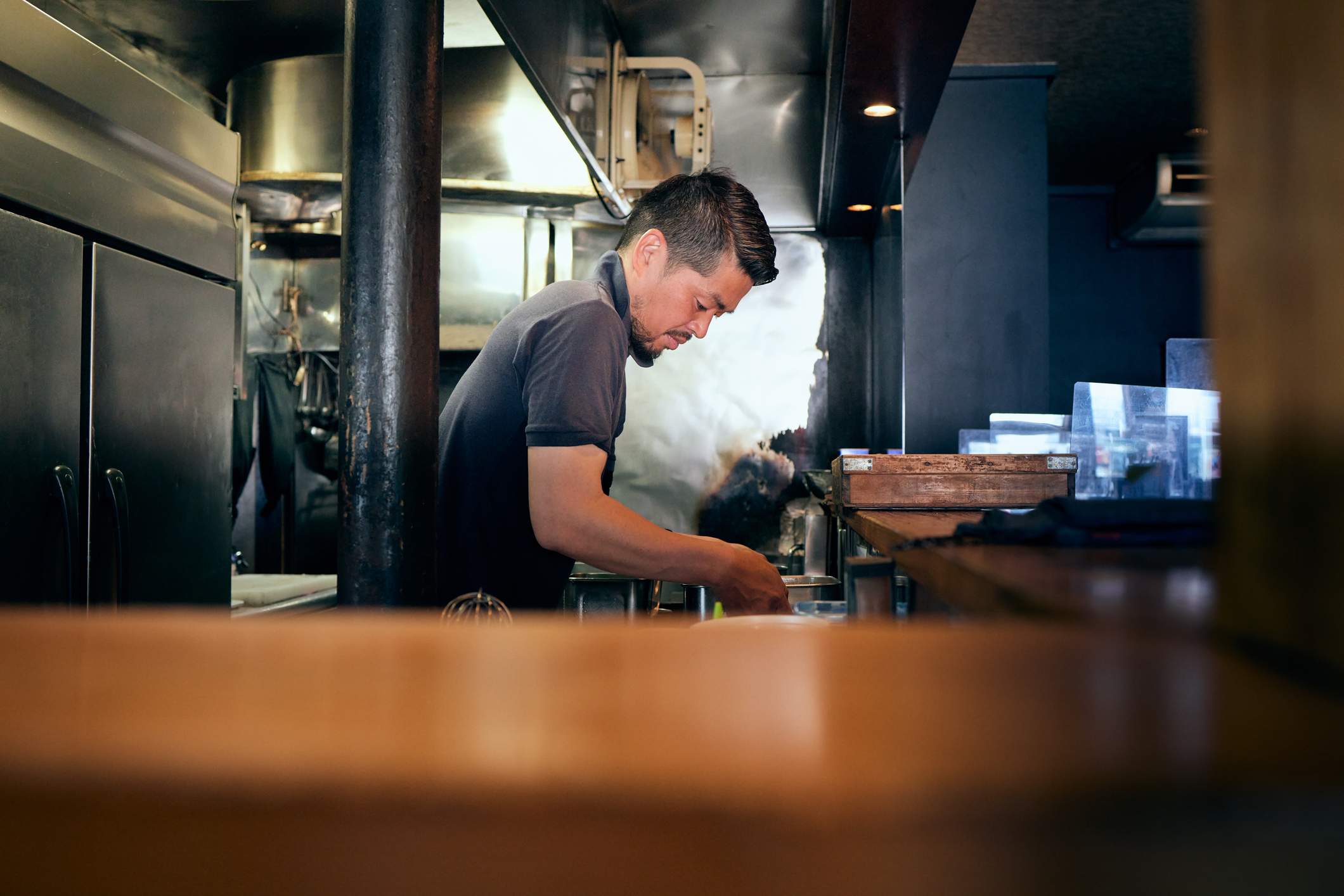Restaurant complaints are unavoidable in the hospitality industry. It’s just a fact of life. But how you handle complaints from restaurant customers determines whether a problem results in a happy regular for life or a one-star review.
Be prepared for the inevitable by preparing your team to handle complaints. With proper training and solid planning, you can turn an annoyed guest into one who will sing your praises. A complaint doesn’t have to ruin a guest’s experience—or your restaurant’s reputation—if your team handles it the right way.
Here’s a 4-step framework for how restaurants should handle all kinds of complaints:
- Listen to the customer and give them your full attention.
- Empathize with their feelings of frustration.
- Apologize for the problem.
- Fix the issue quickly and politely.
Read on for more about how to handle common complaints people make about restaurants both in the dining room and online, with examples of how your team can turn complaints into great hospitality.
Quick Links
Why restaurants must anticipate complaints
Common restaurant complaints and solutions
How to deal with online complaints
Why restaurants must anticipate complaints and have a plan
No matter how incredible the food is or how you’ve designed the dining room, guests are going to complain sometimes. What you can do is have a plan to handle restaurant complaints when they arise.
A restaurant is only as good as its reputation, and reputation management can only do so much. You’ve probably heard the axiom that a happy customer tells one friend about a positive experience, but an unhappy one tells 10 friends. Word of mouth is one of the most important marketing channels for a successful restaurant. With stakes that high, you need to be ready to handle customer complaints in your restaurant and smooth them over—or even turn them into wins.
Teach staff to handle guest complaints with grace and empathy. Give everyone plenty of guidance on how to manage customer service complaints as part of your training program for new hires. Use examples that come up in the course of business to reinforce that training.

How to train team members to handle common complaints in a restaurant
Use these guidelines when training staff members on responding when a guest complains.
- Stay cool, even if the guest doesn’t. Keep calm and collected while hearing out a guest complaint. Never interrupt them. Staff set the tone with polite, professional behavior.
- Respond to complaints with empathy and kindness. Staff should give the guest their undivided attention and hear them out in full. Then they should respond with kindness and offer a solution. It can help to paraphrase what the guest is saying back to them to make sure they feel heard and understood.
- Let guests know you’re taking their feedback to heart. Have a process in place for sharing feedback with higher-ups who can take action to prevent future issues.
- Know when to bring in a manager. If a guest becomes hostile or abusive, let employees know they can call on someone with more authority to smooth things over.
- When all else fails, offer low-cost comps. A free drink, appetizer, or dessert can help turn a negative experience around in many situations.
Common complaints from restaurant customers
Every restaurant is different, but complaints from restaurant customers are usually pretty similar. Here are some of the most common restaurant complaints and solutions for handling them.
Food
A guest doesn’t like their order
If a guest’s order isn’t what they expected, ask for more information. Maybe the problem could be solved with an extra side of dressing, for example. Otherwise, offer to replace the item with something else and remove the offending dish from the check.
A guest’s food is served cold
Apologize and offer to re-fire or replace the dish. When this complaint happens, it’s time to look for opportunities to improve workflow and keep orders from waiting too long at the pass.
A guest waits too long for food or drinks
A hungry customer is not a happy customer. Servers should apologize and, in extreme cases, offer a low-cost comp as a make-good. Debrief with the team after service to figure out what went wrong and discuss how to shorten waits in the future.
A guest gets food poisoning
This is one case where you’ll want to train staff not to apologize. An apology can be seen as an admission of liability if there’s a lawsuit, according to Food Safety. Instead, the server should listen, respond with empathy and without judgment, document information about the complaint, and assure the guest that the issue is being taken seriously. Have a process in place for staff to report possible food poisoning to a manager.
A guest’s dietary restrictions weren’t honored
Order mixups happen, but dietary restrictions raise the stakes. Staff members should never ask the reason behind a dietary restriction—it could be for religious, health, ethical, or other personal reasons. If a guest receives a dish containing something they can’t eat, the server should apologize and offer a replacement. Have ingredient lists on hand and train staff to consult them if guests have questions.
A guest thinks the food is overpriced
Some guests, especially those visiting from out of town, may have a different idea of what they’ll receive based on what they’re paying. There’s not much a server can do in the moment but listen, then explain that menu items are priced based on the cost of using high-quality ingredients.

Service
A guest gets the wrong order
The best way to deal with incorrect orders is to avoid them in the first place. When they do happen, apologize for the mixup and get the guest what they ordered as soon as possible.
A guest waits too long to be seated
When a restaurant is slammed, there’s not much a host can do but hope tables clear out quickly. Train them to offer realistic estimates and offer a seat at the bar while guests wait. If this issue is recurring, you may want to take a look at your turn times and adjust them accordingly.
A guest experiences rude service
Real or imagined, a snippy, unfriendly, or checked-out team member can ruin a guest’s dining experience. Hear them out, apologize for the issue, and assure them that the server’s behavior is unacceptable and you’ll be following up. If possible, get another staffer to finish out their table. Catch up with the offending staffer later to get their take on the interaction. It’s possible that the issue was all a misunderstanding.
A guest spots a mistake on the check
An issue with the check can send a guest’s experience sideways, even if everything else was on point. Deliver standout service by correcting the error and issuing a refund as soon as possible. One way to avoid check discrepancies is with digital ordering on-premises. That way, there’s no confusion between what’s on the menu and what’s on the ticket.
Environment
A guest wants to switch tables
Not every table can be the best seat in the house. If a guest asks to move, a server can politely inquire why. It may be possible to fix the problem without relocating the party. If there’s another table available, though, it’s easier to say yes and move on. If the dining room is packed, the server should apologize, see if the issue can be fixed, and offer a freebie to smooth things over if needed.
A guest complains about a crying child at the next table
Even parents who are used to dining out with kids can struggle to keep little ones on their best behavior. If a customer complains about noisy children, start by kindly and gracefully checking in with the parents.
Keep crayons and a coloring book, a tablet, or other distractions that may help on hand. If the parents don’t calm the kids, management can be called over to issue a gentle ultimatum. Perhaps one parent can take the child outside. In an extreme case, a manager may politely offer to box up the table’s food and bring the check.
A guest thinks the music is too loud
A restaurant dining room can be a noisy place. Guests may find it tough to hear each other over music, clattering silverware, and chatter from other tables. Luckily, this request is pretty easy to accommodate by lowering the volume a bit. Remember to vet your playlists and set a reasonable volume in advance to make sure you’re not drowning out dinner conversation.
A guest sees a pest
An unwelcome visitor scurrying across the floor is enough to ruin any guest’s appetite. If it’s brought to your attention, apologize profusely. Assure diners it’s an anomaly and the restaurant has pest controls in place. Offer a comp if they’re still put off, then call your pest control service for a follow-up visit.
A guest spots a lack of cleanliness
Hair in an entree, fingerprints on a glass, and dirty silverware are all understandable guest turnoffs. Apologize, offer a replacement, and revisit cleaning protocols with the team.

Online complaints
In the Internet age, customer service complaints can impact your restaurant long after a guest’s visit. A badly handled complaint about a restaurant can sink your star rating on Google or Yelp. A guest who doesn’t feel their issue was taken seriously could take to social media and put your restaurant on blast.
How to address restaurant complaints online
One disgruntled guest can influence hundreds or thousands of others with a single social media post or review—which may or may not be true.
Here are some best practices for responding to guest complaints online:
- Stay informed. Keep tabs on your restaurant’s online reviews and social media mentions so you can learn about and respond to online complaints quickly.
- Develop a strategy. Work with the person handling your social media and decide how often to respond to reviews and social posts. The volume can be overwhelming, so pick a set number and frequency to address. Include positive and negative reviews to show people you’re paying attention to all feedback.
- Customize your response. Avoid boilerplate responses. It’s OK to start with a template (see below), but customize replies and respond appropriately based on the platform and content of the review.
- Act quickly. Make sure review sites and social media mentions are checked regularly so you don’t leave an unhappy guest hanging.
- Respond politely to negative feedback online. Responding to a negative review calmly and tactfully shows people that your restaurant values what customers have to say.
- Follow up privately. Sometimes the best response to a negative review is apologizing and following up with the guest directly. On social media, you can comment or DM to ask to take the conversation offline and remedy the issue.
Example of how to respond to a restaurant complaint
Here’s a sample response you can use to respond to customer complaints in person or online.
“Thank you so much for bringing this issue to our attention. I’m so sorry for [issue]. I will [how you’re going to follow up on the issue] to keep it from happening again. We hope you’ll visit us in the future and give our team a chance to make things right.”
As customer complaints come up, it’s important to remember that things have changed in the hospitality industry. The customer is not always right. Staff should feel protected from abusive guests by restaurant owners and managers and empowered to call in the higher-ups for support. Reinforce this idea in staff trainings and make sure that management is ready to back up the team.
You can’t keep guests from complaining, but you and your staff can be ready to handle complaints when they arise. Look at restaurant complaints as an opportunity to showcase your empathy and hospitality skills. With the right prep, you can turn a negative experience into one that guests will rave about for years to come.





